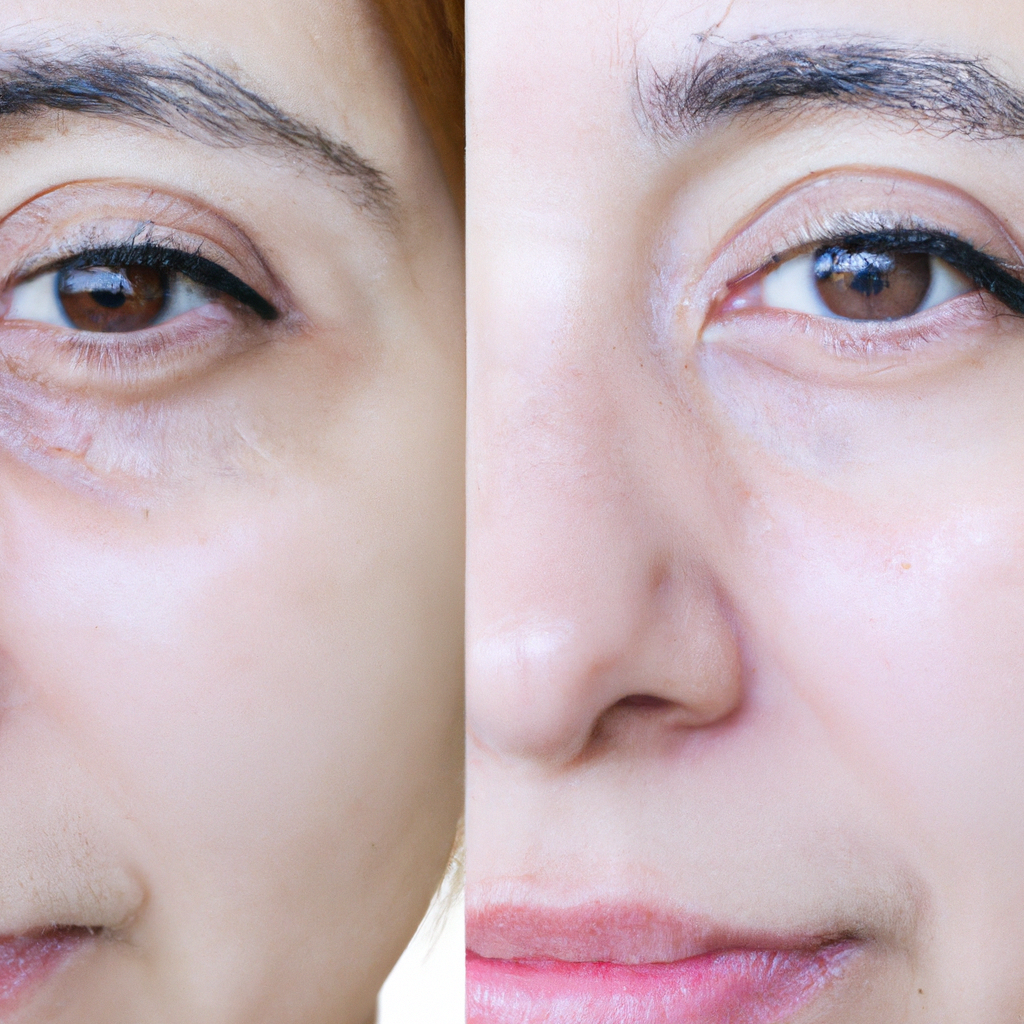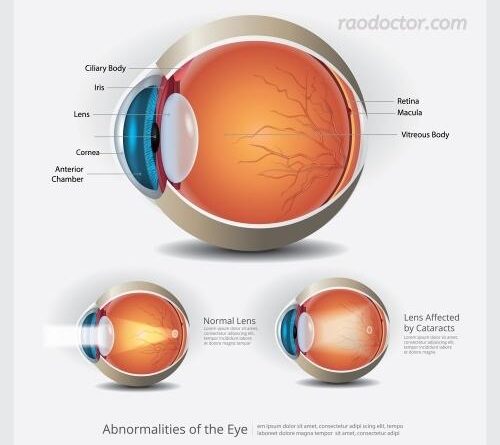7 Problems Of The Eyes You Develop As You Age
What your eyes reveal about your age
The eye is one of the most important sensory organs of life, and when you age, many changes occur in your body. Similarly, your eyes can also reveal many things about your age. A world without eyes or vision is a world without life.
There are many things your eyes can reveal if you dig deeper. We should care for our eyes from a young age so that age-related problems will not occur or slow down.
The main problem is that now the world is full of electronic gadgets like computers, tablets, and mobile phones. They have replaced books over time.
We already know that changes in the structure of the eyeball and muscle weakness occur, but the advent of these electronic gadgets and constant staring at the screens speeds up the aging process.
Now you can see more and more children wearing glasses at a younger age. It’s an alarming situation after COVID Lockdown.
Can the condition and appearance of your eyes tell about it? Let’s look at some eye problems that might develop as you get older.
Please see below the structure of the eye or anatomy of the eye. This will help us to understand which areas are affected during the aging process.
Dry Eye Syndrome
This syndrome develops as you grow old, mainly when you spend more of your time in AC, and also frequent Lasik treatments have triggered this condition. It is a very frequently seen condition that is often misdiagnosed or underdiagnosed because many people do. They do not even realize that they don’t have such a problem.
It is caused by the lack of tears which is essential to keep your eyes wet or hydrated. The lacrimal gland secretes tears inside the eyelid, as shown in the above figure. The gland for optimum hydration of the eyes constantly supplies tears eyes.
As we grow old, around or after 35 years, this gland becomes less efficient or produces fewer tears. This further decreases the production due to content staring o the screen (high Screen Time).
Many patients or adults start complaining of dry and irritated eyes, mainly in the evening. DRY EYE SYNDROME causes difficulty in reading, headaches, and even blurry vision in some cases.
These are not severe complaints, but one needs to consult Ophthalmologist (eye Doctor) or your family doctor for further evaluation.
What action is to be taken –
Immediately visit your family physician and take a ref of ophthalmologist. He may prescribe you artificial tears like:-
- Systane Ultra,
- Maxmoist or
- Refresh tears.
They lubricate or hydrate the same as your tears. It would be best if you had a prescription to buy these medications.
A variety of ayurvedic/homeopathic medicines are also available or over-the-counter drugs. Mostly they are safe to use.
Presbyopia
Presbyopia is the medical term for blurry vision, or you can’t focus on things up close. It’s a natural part of aging, and it usually happens because the lens of your eye loses its ability to change shape. This process usually starts around age 40.
This condition is again worsened using gadgets which we use these days extensively.
The stiffness of the lens causes Presbyopia, and the flexibility of the lens is lost as we age. The lens in our eyes becomes less elastic and starts challenging to focus on near objects.
Reading small print or doing other close work can be difficult for people with Presbyopia. You may find yourself holding reading material far away from your eyes over the times that you used to. Or you may need more light than usual to see clearly.
You Can’t prevent Presbyopia but can correct it with eyeglasses, contact lenses, or surgery. With today’s technology, many options are available to help you see clearly and enjoy your favourite activities again, like Getting your reading glasses, buying a larger computer monitor, or getting LASIK surgery.
Macular Degeneration
Macular degeneration is considered the leading cause of blindness among older adults. As the name suggests, it is a group of conditions that affects the macula ( the central part of the retina) and is responsible for sharp, central vision.
It occurs when the light-sensitive cells in the macula deteriorate or die, causing vision loss. Macular degeneration can make it difficult to read or recognize faces.
There are two types of macular degeneration:
1)Dry and
2)Wet.
Most cases of macular degeneration are dry, which means there is a gradual breakdown of the macula.
In wet macular degeneration, new blood vessels which grow under the retina leak fluid or blood, causing rapid vision loss. Wet macular degeneration is known to be worse than dry macular degeneration and can lead to blindness.
Common Symptoms are blurry vision, hazy vision, a loss of color perception & blind spot created in your field of vision.
There is no specific cure for macular degeneration. But there are treatments available to slow down its progression and improve vision. These include vitamins, antioxidants, special eyeglasses, and injections into the eye.
What action is to be taken
Visit your ophthalmologist. He/she may suggest eye drops or laser treatment.
Glaucoma
Glaucoma is a type of eye condition that damages the optic nerve, which can cause vision loss. It’s usually caused by high pressure in the eye. Glaucoma is considered to be the second leading cause of blindness.
There are two types of glaucoma:
1)open-angle glaucoma and
2)angle-closure glaucoma.
Open-angle glaucoma is the most common type. It happens when your eye drainage channels get clogged over time. Angle-closure glaucoma is less common, but it’s more serious. It happens when your iris bulges forward, blocking the drainage channels. Glaucoma can happen to anyone, but you’re at higher risk if you have a family member with it, you’re African American or Hispanic, you’re over 60 years old, or you have Diabetes.
What is Glaucoma?
Glaucoma is a degenerative eye condition that primarily damages the optic nerve, which transmits signals from the eye to the brain. Glaucoma typically occurs when eye fluid does not drain properly and builds up, causing pressure to build up within the eye. Increased pressure in the eye damages the optic nerve and causes vision loss or blindness.
Symptoms
Glaucoma symptoms typically develop slowly and without pain. In the early stages of glaucoma, patients may experience no symptoms at all. As the disease progresses, however, symptoms may include:
* Gradual loss of peripheral vision
* tunnel vision
* Halos around lights
* Blurred vision
* Severe eye pain
* Nausea and vomiting
What action is to be taken –
Narrow-angle glaucoma comes on suddenly and may cause an acute attack. So you need to be in regular touch with your ophthalmologist after diagnosis.
There are several different treatment options available for glaucoma, depending on the type and severity of the condition. These include medications, laser surgery, and traditional surgery.
Your ophthalmologist may prescribe you these medications-
- Ripatec Eye Drops 2. Brimelow Eye Drops
(you need a Prescription from an ophthalmologist to buy the above medication)
Cataract of Eyes
The cataract of the eye is a condition that results in the clouding of the eye’s lens. The eye lens is responsible for the focus of light on the retina, and when it becomes cloudy, light is scattered instead of focused. This can cause blurred vision and make it difficult to see. Cataracts are a common problem, especially as we age. In fact, by age 80, more than 50% of elderly people have cataracts. But they’re not just a problem for the elderly—children can get them, too.
There are many different types of cataracts, and they are caused by a variety of things, including genetics, Diabetes, trauma, and ultraviolet (UV) radiation exposure.
Cause
Most cataracts are related to aging.
As we get old, the proteins in the lens break down to clump together to become cloudy. Cataracts can also be caused by other factors such as trauma, certain medications, or previous eye surgery.
In some cases, cataracts may form in young children or babies. This can be due to a genetic disorder, infection, or injury to the eye.
Symptoms
Cataracts can cause a number of symptoms, including:
- -blurry vision
- -poor night vision
- -halos around lights
- -double vision
- -fading or yellowing of colors
- -increased sensitivity to glare
What action is to be taken –
This is treatable, and many treatment options are available. The best option for someone will depend on the severity of the condition. In some cases, glasses or contact lenses are needed to improve vision.
For more advanced cases, surgery may be required to remove the cataract and replace the affected lens with an artificial one -IOL (intraocular lens).
If you have a cataract, it is important to see an eye doctor so that they can assess your condition and recommend the best course of treatment. With early diagnosis and treatment, you can help to preserve your vision and maintain good eye health.
Retinopathy
Introduction
Retinopathy is a medical condition in which the retina is damaged.
This can lead to vision problems and even blindness. Retinopathy can be caused by Diabetes, high blood pressure, or other conditions.
If you have retinopathy, you will have any symptoms at first. But as the condition gets worse, you may notice that your vision is getting blurry or that you’re having trouble seeing at night.
If you have Diabetes, you must check your eyes regularly (once a year) for retinopathy. Early treatment can help prevent vision loss.
Cause
Retinopathy can occur in anyone, but it is most common in people with Diabetes and other chronic diseases.
There are two main types of retinopathies:
- Diabetic retinopathy and
- Retinal vein occlusion.
Diabetic retinopathy also causes blindness in adults 20-74 years old.
Retinal vein occlusion is a less common type of retinopathy that is a blockage of the veins that carry blood away from the retina.
In diabetic retinopathy, these changes are caused by high levels of sugar in the blood. Over time, high levels of blood sugar can damage the walls of small blood vessels, causing them to leak or bleed. This can lead to vision loss or blindness. In retinal vein occlusion, blockages in the veins cause problems with drainage and can lead to leaking and bleeding.
If you have Diabetes, it’s important to have blood sugar levels under control by following a healthy diet, exercising regularly, and taking your medication as prescribed. If you have any symptoms of retinopathy, such as blurred vision or trouble seeing at night, immediately see your doctor right away for a comprehensive eye exam.
symptoms
There are generally no symptoms in the early stages of retinopathy. As the disease progresses, symptoms may include:
-Blurry vision
-Floaters (small spots or strings that float in your field of vision)
-Flashes of light
-Dark areas in your vision
What action is to be taken –
There is no cure for either type of retinopathy, but early diagnosis and treatment slow the progression of the disease and prevent vision loss.
Treatment for diabetic retinopathy includes controlling blood sugar levels, managing other diabetes-related complications such as hypertension and nephropathy, and receiving regular eye exams and laser treatments.
Treatment for retinopathy of prematurity usually involves laser surgery to destroy the abnormal blood vessels in the retina.
Dark Circles Under Your Eyes
Introduction
We’ve all been there before the mirror with dark circles under our eyes, looking tired and worn out. But what causes these dark circles? Is it a lack of sleep? Allergies? Stress? The truth is, there can be many reasons why you have dark circles under your eyes. Let’s explore some of the most common causes of dark circles and what you can do to get rid of them. From home remedies to medical treatments, read on to find out how you can banish those pesky dark circles for good.

Cause
The most common cause of dark circles is lack of sleep. When you don’t Sleep or rest, your body doesn’t have a chance to repair itself. This can lead to dark circles under your eyes. As you age, your skin will become less elastic and sag.
Other causes of dark circles include:
- -Allergies
- -Rubbing or scratching your eyes
- -Excessive sun exposure
- -Smoking
- -Drinking alcohol
- -Aging
If you are worried about dark circles under your eyes, you should consult the doctor. He can help you determine the cause and recommend treatment options.
Symptoms
Most people with dark circles under their eyes report the following symptoms:
- -Tiredness
- -Sagging skin under the eyes
- -Wrinkles or fine lines under the eyes
- -Dark discoloration under the eyes
- puffiness under the eyes
Treatment
When it comes to dark circles under the eyes may have a number of potential causes and treatments.
For example, fatigue and also lack of sleep can lead to dark circles, as can allergies or genetics.
If you think that fatigue is the cause of your dark circles, be sure to get a lot of rest and take care of yourself. Allergies can often be treated with over-the-counter medications, but if you suspect that your dark circles are due to genetics, not much can be done.
Below are a few things that can help & reduce the dark circles under your eyes.
- -You need to start by applying eye creams that contain hyaluronic acid and vitamin C.
- -Applying a cold compress to the area for a few minutes daily
- -Using a topical cream or gel containing caffeine or vitamin K
- -Getting more sleep
- -Elevating your head when you sleep
Conclusion
After reading the above article, you can easily understand what changes take place in your eyes and what secrets your eyes hide, so is this a time to take some action?
- -Sleep well
- -Regular Eye check-ups.
- -Take care of your chronic diseases like Diabetes
- If you notice any eye problem, immediately consult your doctor
- -Try to avoid long screen time
However, there are steps you can take to slow down the process.
Disclosure:-
Some of the links used in this article are affiliate links. i.e., if you sign up for their paid program or make a purchase, I will get a commission, at no extra cost to you. Please be rest assured that I only recommend software/ products I genuinely believe in, and trust to be good for you too.




